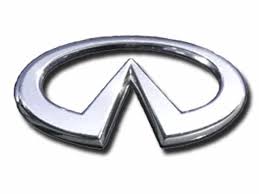FX45 AWD V8-4.5L (VK45DE) (2006)
/Page-2319002.png)
-
to rear combination lamp LH terminal 1
-
to rear combination lamp control unit terminal 2
-
to front side marker lamp RH terminal 1
-
to parking lamp RH terminal 2
-
to license plate lamp RH terminal 1 and
-
to rear combination lamp RH terminal 1.
Ground is supplied at all times
-
to front side marker lamp LH terminal 2
-
through grounds E21, E50 and E51,
-
to parking lamp LH terminal 3
-
through grounds E21, E50 and E51,
-
to license plate lamp LH terminal 2
-
through grounds B15 and B45,
-
to rear combination lamp LH terminal 2
-
through grounds B15 and B45,
-
to front side marker lamp RH terminal 2
-
through grounds E21, E50 and E51,
-
to parking lamp RH terminal 3
-
through grounds E21, E50 and E51,
-
to license plate lamp RH terminal 2
-
through grounds B15 and B45,
-
to rear combination lamp RH terminal 2
-
through grounds B203 and B210,
-
to rear combination lamp control unit terminal 7
-
through grounds E21, E50 and E51.
With power and ground supplied, the parking, license plate, side marker and tail lamps illuminate.
COMBINATION SWITCH READING FUNCTION
Refer to BCS-3, "COMBINATION SWITCH READING FUNCTION". See: Body and Frame/Body Control Systems/Body Control
Module/Description and Operation
EXTERIOR LAMP BATTERY SAVER CONTROL
When the combination switch (lighting switch) is in the 1ST (or 2ND) position, and the ignition switch is turned from ON or ACC to OFF, the battery
saver control feature is activated.
Under this condition, the parking, license, side marker and tail lamps remain illuminated for 5 minutes, then the parking, license plate, side marker and
tail lamps are turned off.
Exterior lamp battery saver control mode can be changed by the function setting of CONSULT-II.
CAN Communication System Description
CAN (Controller Area Network) is a serial communication line for real time application. It is an on-vehicle multiplex communication line with high data
communication speed and excellent error detection ability. Many electronic control units are equipped onto a vehicle, and each control unit shares
information and links with other control units during operation (not independent). In CAN communication, control units are connected with 2
communication lines (CAN H line, CAN L line) allowing a high rate of information transmission with less wiring. Each control unit transmits/receives
data but selectively reads required data only.
CAN Communication Unit
Refer to LAN-32, "CAN Communication Unit". See: Powertrain Management/Computers and Control Systems/Information Bus/Description and
Operation
